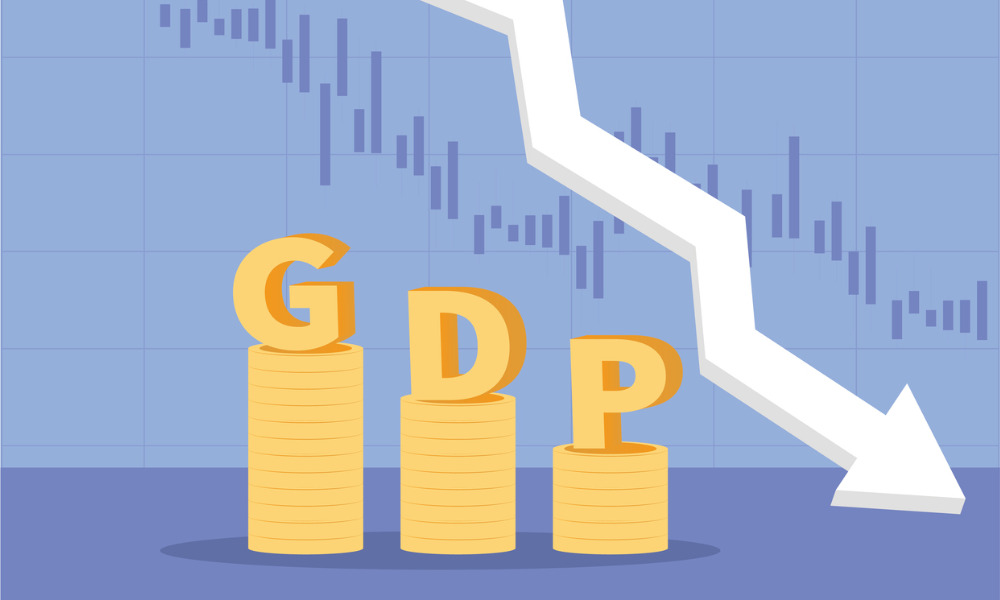Per-capita GDP decline continues for the sixth consecutive quarter

As Canada gears up to release its GDP growth figures for the fourth quarter and December, all eyes are on the Bank of Canada, especially after last week's lower-than-expected inflation rates for January. Economists are forecasting a slight uptick in Q4 GDP growth, with an expected 0.5% annualized increase.
This growth could help Canada sidestep the technical definition of a recession, which typically involves two consecutive quarters of contraction. However, it also marks the sixth consecutive quarter of decline on a per-capita basis, considering Canada's rapid population increase and a climbing unemployment rate.
Consumer spending showed signs of recovery in the last quarter, with retail sales volumes leaping by an annualized 5.3%. On the flip side, business investment seemed to cool off, as indicated by a decrease in equipment imports and a slowdown in construction activities. Even though more people were employed during the quarter, there was a noticeable drop in total hours worked, the first since the initial lockdowns of the pandemic in early 2020.
Read next: CPI report indicates lingering inflation pressures
For December, analysts project a slight 0.1% increase in GDP, a progression from November's 0.2% rise but falling short of Statistics Canada's initial 0.3% estimate, which remains subject to significant revisions. The month witnessed a notable increase in oil and gas extraction activities and a 0.8% rise in retail sales volumes from November.
The boost in December was partly due to a spike in oil and gas extraction and a 0.8% month-over-month increase in retail sales volumes. However, declines in manufacturing and wholesale sales, along with the impact of public sector strikes in Quebec, are likely to have affected overall output. Early indicators also point to a slowdown in consumer spending in January after the holiday season shopping spree.
Despite these mixed signals, the Canadian economy hasn't weakened to the point of prompting the BoC to cut interest rates immediately. Inflation is on a slow decline but still exceeds the central bank's 2% target. The consensus among experts is that the BoC may start reducing interest rates in June, assuming inflation continues its downward trajectory.
Make sure to get all the latest news to your inbox on Canada’s mortgage and housing markets by signing up for our free daily newsletter here.



